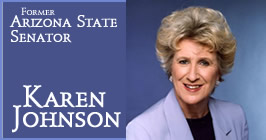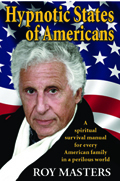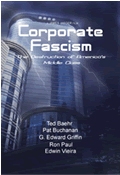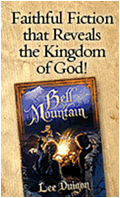By
Former Arizona State Senator Karen Johnson
December 7, 2011
NewsWithViews.com
One of the biggest obstacles Mitt Romney faced when he ran for President in 2008 was the fear that, if elected, he would take orders from the President of his Church. Like the Catholic Jack Kennedy in his 1960 race for the presidency, Romney, a member of the Church of Jesus Christ of Latter-day Saints (LDS), had to overcome the uneasy suspicion that the head of his church would dictate public policy. To dispel such fears, Romney gave his memorable "Faith in America" speech in which he stated:
"Let me assure you that no authorities of my church, or of any other church for that matter, will ever exert influence on presidential decisions. Their authority is theirs, within the province of church affairs, and it ends where the affairs of the nation begin.
"As governor, I tried to do the right as best I knew it, serving the law and answering to the Constitution. I did not confuse the particular teachings of my church with the obligations of the office and of the Constitution - and of course, I would not do so as president. I will put no doctrine of any church above the plain duties of the office and the sovereign authority of the law.
"As a young man, Lincoln described what he called America's 'political religion' - the commitment to defend the rule of law and the Constitution. When I place my hand on the Bible and take the oath of office, that oath becomes my highest promise to God. If I am fortunate to become your president, I will serve no one religion, no one group, no one cause, and no one interest. A president must serve only the common cause of the people of the United States....We separate church and state affairs in this country, and for good reason. No religion should dictate to the state nor should the state interfere with the free practice of religion."
Romney's speech was generally well received, and it appeared that he had put the matter to rest. Unfortunately, the question of LDS Church influence has roared to life again in 2011, with indications that it could affect the 2012 elections.
It began in November, 2010, when a group of Utah businessmen, politicians, newspaper publishers, and various church denominations launched a list of principles they felt should guide immigration policy. They called it the Utah Compact. Although the LDS Church likely received considerable pressure to sign on to the Compact, they declined to do so. However, they DID issue a news release stating that they endorsed the principles of the Compact. In addition, a few prominent church employees signed the Compact, which added to the perception that the Church endorsed it.
The Compact was filled with vague, benevolent statements that implied that amnesty is the solution to our immigration ills. Many members of the LDS Church then embraced amnesty because they thought their church did.
The first test of the Compact came in the 2011 legislative session in Utah. Roughly 80 percent of the members of the Utah legislature are also members of the LDS Church. Church employees roamed the halls of the Utah capitol lobbying Representatives and Senators for their vote in favor of immigration bills pushed by the supporters of the Utah Compact. Refusal to support those bills was viewed as rejection of the Compact and, by extension, disobedience to the President of the LDS Church. The vote on these immigration bills became a test of the LDS legislators' allegiance to their Church. LDS Church President Thomas S. Monson never personally lobbied for the bills, but the Church-owned newspaper, the Deseret News, blared its support for both the Compact and the immigration bills, and employees from the Church Public Communications office continued to lobby every day. The message heard by Utah's LDS legislators was: "If you don't vote for these bills, you will be disobeying the President of the Church."
In addition to being a test of one's allegiance to the LDS Church, the Utah votes were also a test of the LDS legislators' fidelity to their oath of office. Many of the legislators did not support the proposed immigration bills, but they felt pressured to comply with what they perceived to be the wishes of their church. The choice was between making a correct policy decision or obeying the LDS Church. In the end, many of the Utah legislators caved in. When faced with a clear choice between performing their duties as elected officials or obeying the perceived dictates of the LDS Church, they threw their oath of office out the window and voted the way they thought their Church leaders expected. It wasn't the first time that Utah legislators changed their votes to conform to the wishes of the LDS Church contrary to their own best instincts. So much for Mitt Romney's insistence that an elected official would never be influenced by the leaders of the LDS Church. The Left has correctly perceived that obedience to Church leaders is an important value among members of the LDS Church, and they have figured out how to use that to manipulate LDS elected officials.
The image of [some] Utah legislators scurrying about, wringing their hands, and holding their breath as they watched for a sign from church leaders on how to vote is even more sickening when one realizes that it was left-wing, radical, Marxist groups that were pushing the immigration bills (and the Utah Compact) behind the scenes. But things got infinitely worse when the Compact promoters went national.
In early 2011, community organizers fanned across the country laying the groundwork for Compacts in other states. In Arizona, advocates of the Utah Compact launched a recall campaign against the LDS State Senate President, Russell Pearce, the hero of the nation on immigration reform and border security. A 2010 Pearce bill (SB1070) had created hysteria on the Left when it triggered a nationwide rush for similar enforcement bills in other state legislatures. As the author of SB1070 and a prominent national leader on immigration enforcement, Pearce became the bull's-eye in the target of Leftist radicals who organized to take him out. Pearce's opponents ran a nasty but effective campaign based on character assassination, voter recruitment, and alienation of the many LDS voters in Pearce's Mesa, Arizona, legislative district.
The opponents announced their strategy early in the recall campaign. DeeDee Blase, head of Arizona's Somos Republicans, an open borders advocacy group, said: "The biggest win with regard to our efforts is getting a special supporter who is a devout member and a member of the high council of the Mormon Church. We have scheduled lectures that will be specifically aimed to members of the LDS community as well as the business community. We know that Mesa has a Mormon stronghold, and in order for us to have an overall effective campaign, we must win over the Mormon community. It is imperative for them to know that Russell Pearce (a member of the LDS community) refuses to listen to the Mormon Prophet, and he refused to uphold the Constitution of the United States."
The accusation was a lie. Pearce is a strong constitutionalist and a devout and active member of the LDS Church. Most important, suggesting that he "refused to listen to the Mormon Prophet" was a trap. If he protested that he was obedient to the prophet and supported the Utah Compact (which was a call for amnesty), he was dishonoring his oath of office and violating the wishes of many of his constituents, not to mention his own knowledge of the crisis on our borders. If he proclaimed that he was NOT dictated to by the leaders of his Church, he appeared to be disobedient to his church leaders, which would sully him in the eyes of many of the LDS voters in his district, who view obedience to church leaders as a standard of honor. There is no way for an LDS candidate for office to defend himself against such an accusation.
Blase's accusation revealed that the recall campaign would promote a religious test for holding office. "Obey the Mormon Church or you're not qualified for election." Pearce was repeatedly accused of being disobedient to his Church leaders because of his strong views on immigration. His opponent was portrayed as a choir boy who obeyed the prophet. It cost Pearce votes among LDS voters.
Blame for this dilemma goes not to the Marxist radicals who ran the campaign against Pearce or even to the LDS Church hierarchy, which had lobbied hard for the Utah immigration bills and seemed to support the Utah Compact. The blame goes entirely to the members of the LDS Church in Pearce's legislative district who swallowed the false argument that Pearce's highest duty as an elected official was to satisfy the wishes of the LDS Church.
Some Mesa LDS businessmen who support amnesty joined forces with the radical Left to take Senator Pearce down. One of these men, Daryl Williams, an LDS attorney who did not live in Pearce's district but actively campaigned against him, gave firesides (an LDS cottage meeting) and seminars on the Utah Compact, never missing a chance to say that Senator Pearce was violating church doctrine. In a promo for one of his firesides, Williams proclaimed:
"Russell Pearce, the chief proponent of Arizona's immigration laws is, like me, a Mormon. His views, however, do not reflect the official position of The Church of Jesus Christ of Latter-day Saints, the official name of the Mormon church. Indeed, Mr. Pearce's views are inconsistent with the official position of his church." (See here.)
Williams' message was that Senator Pearce should shut up and do what the President of the LDS Church wanted, regardless of his oath of office or his duty to his constituents.
In one interview, Williams stated, "I believe that Mr. Pearce's position [to enforce the law against illegal immigrants] is inconsistent with policy statements that have been promulgated by the church." He added, "I personally do not think that you could be a faithful Christian or faithful Mormon and take such ... positions ...."[1]
Williams promoted the religious test throughout the campaign. In an Op Ed in one of Arizona's major papers, Williams declared, "Mormons and other Christians who advocate sealing the borders and the mass deportation of immigrants are out of sync with the official position of the Mormon Church."[2] According to Williams, a candidate does not deserve to hold public office unless he stays "in sync" with the "official position of the Mormon Church."
Williams, an attorney who should know better, has created a new standard for members of the LDS Church who want to run for office. The standard is that they must meet a religious test in order to run. The test is obedience to the leaders of the LDS Church. Such a standard is unconstitutional, of course. It is also the death knell for LDS candidates for office. Outside of Utah, Mormons are a distinct minority group. They cannot get elected with the votes of only LDS Church members. They must appeal to a broad base of voters of all faiths, and they must be able to honestly assure the public that their allegiance is to the Constitution, not to the policies of their Church.
Almost singlehandedly, Daryl Williams created an image of LDS elected officials bowing to the wishes of the LDS Church. That perception, of course, is odious to those who belong to other churches. The general public will reject an LDS candidate for office whom they perceive will be a puppet for the LDS Church.
Some LDS Church members in Mesa, Arizona, bought the religious test and voted accordingly. Losing the vote of LDS constituents who mistakenly perceived that he had disobeyed their Church leaders contributed to Pearce's defeat. This message wasn't lost on the national media. The Washington Post stated in an editorial recap of the election that "Immigration was a factor in his defeat in large part because the Mormon Church decided that it should be."[3]
You can be sure that others have gotten the message loud and clear. Mitt Romney's 2007 "Faith in America" speech aside, many people are wondering once again what a Mormon candidate for political office will do when faced with a decision that appears contrary to the position of the LDS church leadership. Can Romney be trusted to secure the borders, since it appears that the leaders of the Mormon Church want amnesty? Regardless of any tough statements on border security that he might make during the campaign, will he ultimately betray the public on immigration if the LDS Church sends him a cue? What role does the LDS Church really play in politics?
The LDS Church has on occasion taken strong positions on moral issues such as abortion, homosexual marriage, and the Equal Rights Amendment. Churches have every right to take a position on moral issues, of course. They also have a right to take positions on policy issues, such as immigration. Church voices are important in public debate. However, elected officials must always remember that when they vote on a particular bill, they are acting as elected officials, not representatives of their Church.
They wear a different hat when they vote on legislation. At those moments, they are duty-bound to exercise their best judgment on an issue, based on months of study, committee hearings, discussions with experts and constituents, and in line with the state and U.S. Constitutions. At that brief moment in time when they cast their vote, they must honor their oath to the Constitution. They must not put the wishes of the Church ahead of their duties as elected officials.
| Subscribe to the NewsWithViews Daily News Alerts! |
The Arizona recall campaign spells trouble for Mitt Romney's presidential campaign. I am not a Romney supporter but, if the public perception grows that LDS officeholders are expected to take orders from their Church leaders, then it will be goodbye to the possibility of an LDS candidate becoming President. Furthermore, qualified, talented LDS Church members will find it increasingly difficult to get elected to public office. That is a shame, because LDS Church members are patriotic and are strong supporters of the Constitution. I am LDS myself, and I know many good LDS elected officials. But LDS candidates will be rejected if the public believes they will put orders from their church leaders ahead of their legislative duties and their oath of office. If that happens, members of the LDS Church will have only themselves to blame for swallowing the idea that LDS candidates must pass a religious test to get elected. There is no religious test for office in this country.
Footnotes:
1.
"Stormin
Mormons," AZ Capitol Times, Aug. 8, 2011.
2.
"Williams:
A Mormon's View on Immigration," Op Ed, Arizona Republic, Oct.
22, 2011.
3.
"Arizona
Recall: Why Russell Pearce Lost," Washington Post, November 9,
2011.
� 2011 Karen Johnson - All Rights Reserved
Karen Johnson served in the Arizona legislature for 12 years, from 1997 through 2004 (AZ House of Representatives) and 2005 - 2008 (AZ Senate). Her all-time favorite committee assignment was chairing the Federal Mandates and States' Rights Committee. During her service in the legislature, she supported the Second Amendment, individual, property and of course states rights, as well as the Right to Life, and she still does. Karen and her husband, Jerry, have 11 children and 35 grandchildren. She believes strongly in the doctrine of liberty and does not desire to be tethered to ANY particular party.
Website:
E-Mail: Kstjohnson747@gmail.com












 Share
This Article
Share
This Article




